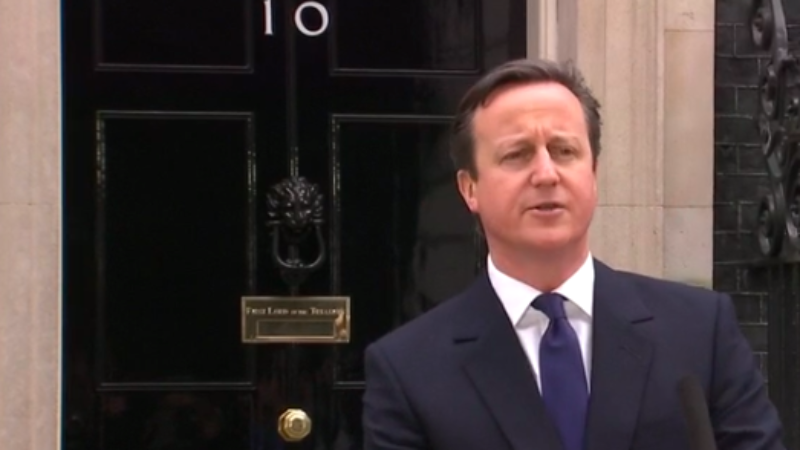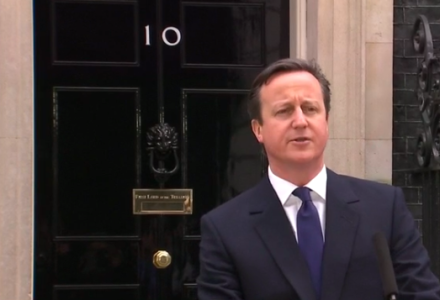

“I voted Tory with gritted teeth, as I think many did. I take no pleasure in their success.”
This was the message I received from a woman who runs a small business in Cardiff North, the constituency where, until May 7th, I was Labour’s parliamentary candidate. And from where, on May 8th, a Conservative Member of Parliament was returned.
Cardiff North was 4th on Labour’s target list for this election, with a Tory majority of just 194. The incumbent MP was retiring and there were 8,000 people who had voted Liberal Democrat in the Cleggmania of 2010.
During my time as candidate, we had 100s of volunteers fighting a positive, energetic campaign and spoke to over 50,000 people. Then there was my part: I’m a teacher, I’m from Cardiff North, live in the constituency. I met over 4,000 people face to face, helped run local campaigns on saving bus routes and protecting libraries. But, despite all this, we didn’t win.
We lost by 2,000 votes. In 2020 we’d be 17th on our target list.
We lost because, as was the case across the UK, we lost the argument.
Just after the result I received the e-mail from that small business owner.
She went on to say that she did not have confidence in us on the economy and that we “did not appear to support businesses” like hers. They are, she said, “the engine that makes the jobs and pays the taxes that make public services fundable.”
The message was loud and clear. Economically, we weren’t seen as competent. For me this sums up why we didn’t win in Cardiff North and elsewhere.
Quite possibly, we lost that argument right from the start. One of the things that has struck me in this election is how winning the argument is about writing the story. As any history student will know, winners write history. It seems the Conservatives knew that too.
From day one, they began to write the narrative of an economic collapse caused by a Labour government. Despite our honest responses – that a global economic collapse necessitated a massive investment in failing banks, and that the money Labour spent was on rebuilding schools, hospitals and public services – we never effectively challenged that narrative.
In Cardiff North, we fought the election on the threat to Wales from Tory cuts. But the problem was that even though a high proportion of people work in the public sector who can see first-hand the long term damage cuts cause, many people still see these spending cuts as necessary. Implicit in the Tory message was the comparison, used to devastating effect by Thatcher, that the economy is like a household income. It isn’t, but the message worked.
The other challenge about winning the big arguments is that big arguments are made with little illustrations that pin the myth irrefutably in the eyes of many. The gold, the note, the missed section of speeches. These were lines quoted back to us on the doorstep after being read in papers and talked about at the hairdressers.
Another way we lost the argument was as result or the language we used. We talked about “working people” – an allusion to class. But how people see themselves, or what they would like to be in future – such as home owners, with two jobs, or as the squeezed middle – is more important than the category a sociologist might place them in. The middle got left behind.
Our organisation was good and the thousands of conversations will have made a difference but what we really needed was to be talking to the right people – the undecideds over and over again. I received this email on the day of the election that showed it could and did work:
‘Prior to the election I was dead set on voting for UKIP and going against labour for the 1st time ever BUT your campaign team have changed my mind. I have never known a party campaign as strongly as you and your team have in this election and have been visited 4 times at home in the run up to today. I wanted to thank you for changing my mind and keeping my vote where it should be and wanted to say good luck for today, whether you get the seat or not you have run a great campaign and am proud to be a labour voter.’
Good to know that there were clearly some people who were convinced by the campaign.
So this is our challenge now. Big arguments are not won by just saying a simple message. That message needs to be founded in the right values and policies, constructed with the right language and delivered through thousands of people in short doorstep chats.
We all have a part to play in making sure that this defeat is what galvanises us as volunteers for next time so we can go out and confidently deliver a clear message to voters that convinces them Labour can deliver a more prosperous and decent society.
Our choice of leader is of course a critical part of responding to that challenge.
To win the argument we have to write the chapters that build our narrative. We do not yet know the moments that we pin the story around but in the run up to the leadership contest let’s make sure that the Tories don’t get their chance again.
We are writing history.
Now.




More from LabourList
‘Labour’s quiet quest for democratic renewal’
‘Labour promised to make work pay. Now it must deliver for young people’
‘Council Tax shouldn’t punish those who have the least or those we owe the most’